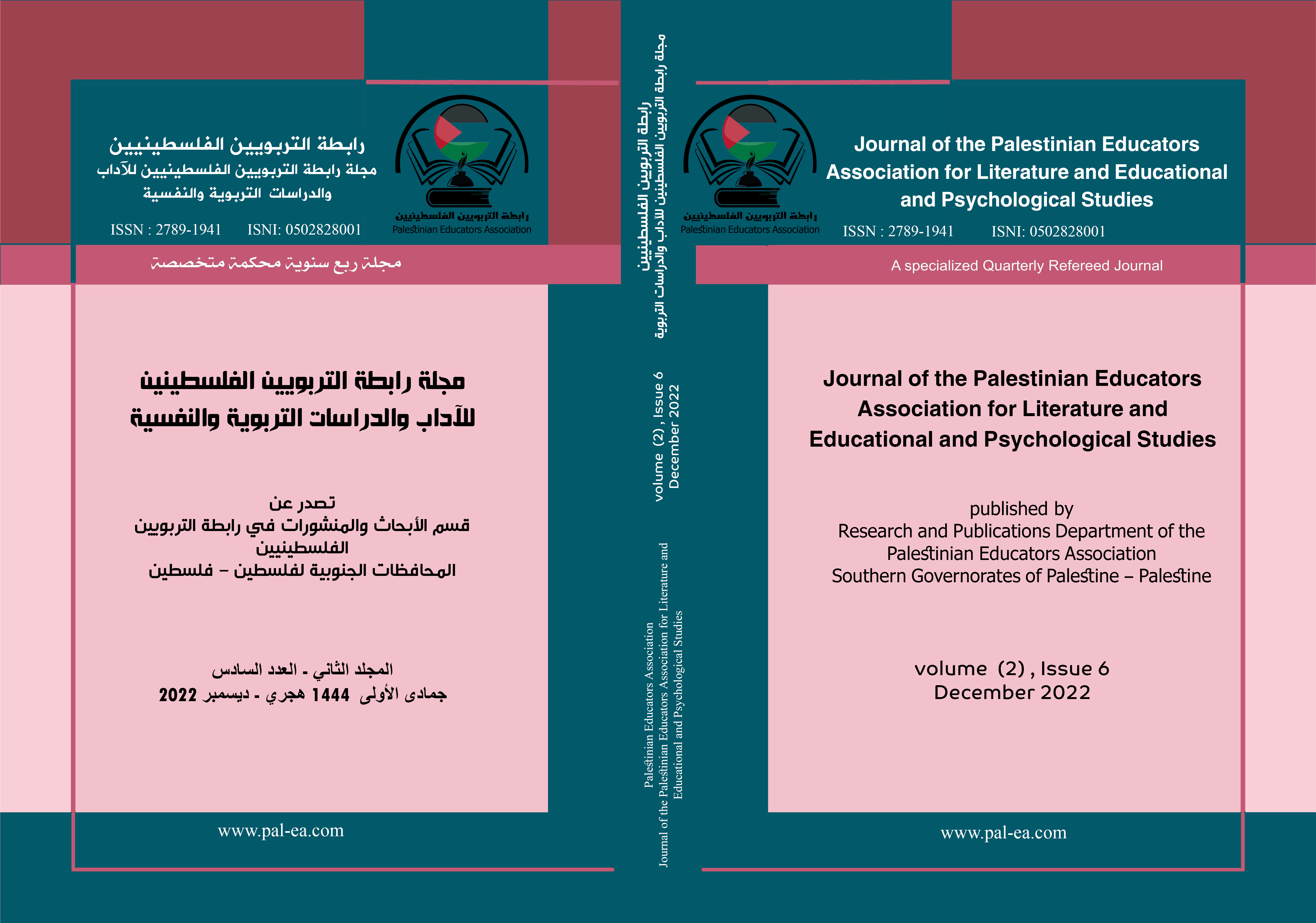Factors that affect the discovery of creative students and the role of the teacher’s intellectual biases in discovering creative people and increasing the effectiveness of their creativity
Keywords:
Intellectual biases. Gifted studentsAbstract
The study aimed to know the factors that affect the discovery of gifted students and the role of the teacher's intellectual biases in discovering gifted people and increasing the effectiveness of their creativity. In this study, the descriptive analytical approach was followed by adopting a questionnaire as a means of data collection. The study sample consisted of 150 students and 30 teachers. The data were collected and analyzed using the Statistical Analysis Program for Social Sciences (SPSS). The most important findings of the study were the existence of a clear discrepancy about the students' classification of themselves and their peers, and the teachers' classification of them. So that the students have more opportunities for creativity and innovation than their teachers expected, and the role of intellectual biases is clear to the teacher in limiting the recognition of creativity, and thus becomes clear the limited role of the teacher in the gifted process because of it, and thus pay attention to the possibility of increasing its effectiveness by overcoming the factors that led to this limitation.
Downloads
References
المراجع العربية:
إبراهيم، أسامة و أيوب، علاء. (2011). النظريات الضمنية كمنبئات لتحيز المعلمين في ترشيح الطلاب لبرامج الموهوبين. المجلة المصرية للدراسات النفسية. 21(72)، ص33-76.
بلواني، انجود. (2008). دور الإدارة المدرسية في تنمية الإبداع في المدارس الحكومية في محافظات شمال فلسطين ومعيقاتها من وجهة نظر مديريها. رسالة ماجستير غير منشورة، جامعة النجاح الوطنية.
بوزويقة، عبد الكريم. (2021). دراسة تشخيصية لواقع رعاية الموهوبين في المدرسة الجزائرية. رسالة دكتوراة غير منشورة، جامعة سطيف في الجزائر.
عساف، جمال. (2013). اتجاهات معلمي الدراسات الاجتماعية نحو تنمية مهارات التفكير الإبداعي لدى طلبة المرحلة الأساسية العليا في مديرية تربية عمان الثالثة. مجلة الجامعة الإسلامية للدرسات التربوية والنفسية. 21(1)، ص 269-292.
المراجع العربية الانجليزية
Ibrahim, A and Ayoub, A. (2011). Implicit Theories as Predictors of Teacher Bias in Nominating Students for Gifted Programs (Arabic). The Egyptian Journal of Psychological Studies. 21(72), pp. 33-76.
Balwani, A. (2008). The role of the school administration in developing creativity in government schools in the northern governorates of Palestine and its obstacles from the point of view of its principals (in Arabic). Unpublished master's thesis, An-Najah National University.
Bouzouika, A. (2021). Diagnostic study of the reality of gifted care in the Algerian school (in Arabic). Unpublished PhD thesis, University of Setif, Algeria.
Assaf, c. (2013). Attitudes of social studies teachers towards developing creative thinking skills among upper basic stage students in the Amman Third Directorate of Education (in Arabic). Journal of the Islamic University for educational and psychological studies. 21(1), pp. 269-292.
Downloads
Published
Issue
Section
License
Copyright (c) 2022 دانيا منصور سماعنة، لينا محمد سماعنة ، ديما محمد سماعنة (مؤلف)

This work is licensed under a Creative Commons Attribution-NonCommercial-ShareAlike 4.0 International License.
The Journal of the Palestinian Educators Association for Literature, Educational and Psychological Studies
E-issn: 2789-1941
Authors retain Copyright
The Journal of the Palestinian Educators Association for Literature, Educational and Psychological Studies allows Authors retain Copyright and grant the journal right of first publication with the work simultaneously licensed under a Creative Commons Attribution (CC-BY) 4.0 License that allows others to share the work with an acknowledgment of the work’s authorship and initial publication in this journal.
Provided they are the owners of the Copyright to their work, authors are able to enter into separate, additional contractual arrangements for the non-exclusive distribution of the journal’s published version of the work (e.g., post it to an institutional repository, in a journal or publish it in a book), with an acknowledgment of its initial publication in this journal.
Authors are permitted and encouraged to post their work online (e.g., in institutional repositories, disciplinary repositories, or on their website) prior to
and during the submission process.










